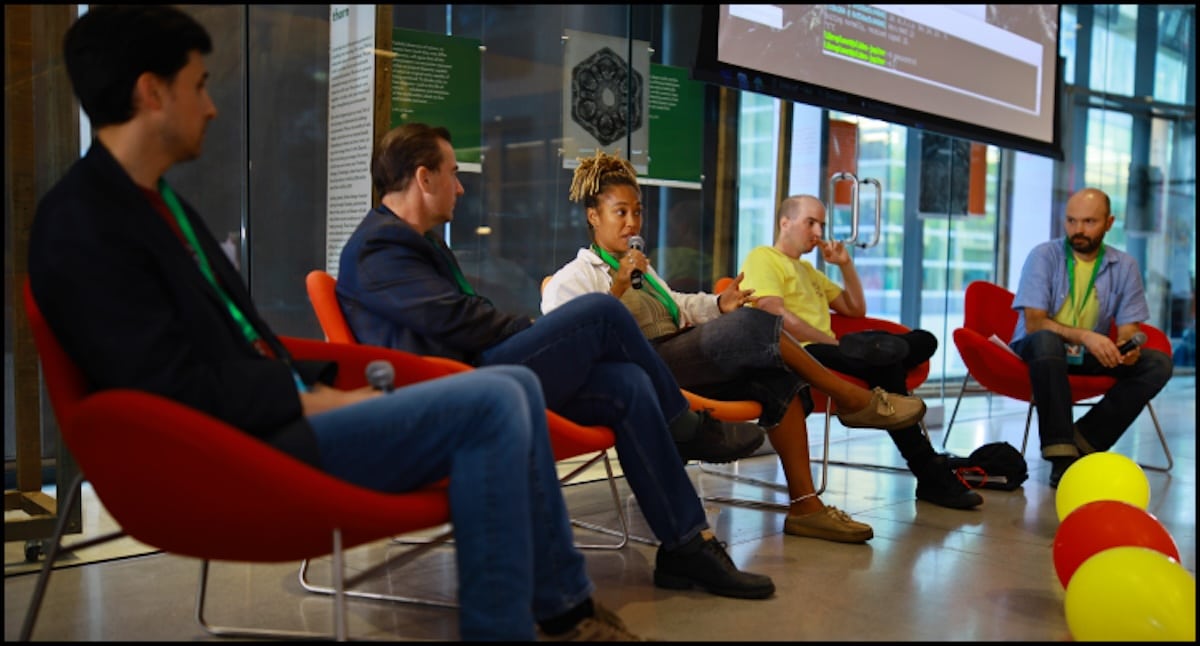The Free Software Foundation (FSF) turned forty years old and took the opportunity to announce a new president, a bold mobile project, and a 2026 roadmap that places the community —and AI— at the center. During the FSF40 event, the organization introduced Ian Kelling as President, revealed LibrePhone —an initiative to bring free software principles to the mobile ecosystem—, and announced plans to publish “free” machine learning criteria to evaluate AI projects from a user freedom perspective.
“I want to strengthen FSF’s ability to combat new threats to user freedom and attract more people to the movement,” said Ian Kelling upon taking office.
A seamless transition: original mission, new frontiers
The inaugural panel gathered Christina Haralanova, Geoffrey Knauth, Gerald Jay Sussman, Ian Kelling, and Richard M. Stallman to review the mission and roadmap. The shared message: same foundational goal — ensuring anyone can use, study, modify, and share software — with a focus on modern threats: closed mobile ecosystems, opaque firmware, restrictive app stores, platform lock-in, and unverifiable AI.
Following the announcement of the leadership change, veteran ecosystem collaborators Amin Bandali (GNU, EmacsConf, Debian, Trisquel), Corwin Brust (Savannah Hackers, Emacs), and Panos Alevropoulos (Licensing & Compliance Lab, End Software Patents) emphasized that the movement’s strength is not institutional but community-driven.
LibrePhone: bringing computing freedom to your pocket
Executive Director Zoë Kooyman announced LibrePhone, a project to build a mobile experience faithful to free software principles. In collaboration with Rob Savoye (a veteran developer in the GNU ecosystem), the initiative aims for an ambitious goal: minimize proprietary dependencies across the mobile supply chain (boot, firmware, connectivity, distribution, repositories, and app layers).
What to expect in practice:
- Auditable boot and firmware whenever hardware permits, with anti-lockdown policies.
- Distribution and store aligned with user freedom (transparent review, no contractual lock-ins, no intrusive tracking).
- Supported hardware pilot (to be defined) and reproducible toolchain.
- Open doors for collaborations with existing projects (free kernel, F-Droid, privacy OS), avoiding reinventing the wheel.
“Everyday computing happens on mobile. LibrePhone can bring freedom to many more users around the world,”
emphasized Kooyman.
AI and freedom: towards “free ML” criteria
The FSF announced it’s working on public criteria to assess machine learning projects with an ethical-technical approach rooted in free software: licenses (models, datasets, weights, code), traceability (training data and origins), reproducibility (toolchains), portability, and genuine auditability. The goal is to mobilize the community and provide governments and companies with a measurable framework that goes beyond the “open” label.
Closer to the grassroots: LibreLocal and distributed events
The 2026 plan reinforces the strategy of local, sustained events. Leaders of LibreLocal —Delta Shahinpoor, Ryan Petroff, Dakota, and Zack— shared what works (small groups with clear goals, focus on education and maker spaces) and what’s challenging (resources, continuity, visibility). The idea: complement major conferences with local chapters that nurture community.
Partnerships: EFF, F-Droid, Sugar Labs
The closing session included Paige Collings (EFF), Marc Prud’hommeaux (F-Droid), Devin Ulibarri (Sugar Labs), and Greg Farough (FSF). The panel covered privacy, threats to mobile freedom, education, and campaigns. The common message: agenda convergence. EFF pushes for digital rights; F-Droid fights lock-in on mobile; Sugar Labs promotes free digital skills in schools; FSF acts as ethical pillar and toolbox.
Why it matters for the tech sector
- Mobile as the new PC. If computing freedom doesn’t land on phones, the desktop conquest remains incomplete. LibrePhone aims to fill this gap with a combination of supported hardware, audited distribution, and User-friendly store policies instead of vendor lock-ins.
- Auditable AI. With models and data chains becoming increasingly crucial, clear criteria to evaluate licenses and traceability will be a benchmark for regulators, universities, and startups seeking to balance innovation with freedom.
- Network effect. LibreLocal and partnerships with EFF, F-Droid, and Sugar Labs expand reach — from legal advocacy to mobile distribution and education. For the tech ecosystem, this translates into talent trained in open practices and demand for interoperable products.
Signals to watch in 2026
- LibrePhone roadmap: reference hardware, boot policies, repositories, and store that support freedom.
- “Free ML” draft: what it requires for weights, datasets, code, and pipelines; how it interacts with existing licenses.
- LibreLocal chapters: ability to scale without bureaucracy and create critical mass outside major hubs.
- Integration with aligned actors: practical synergies with F-Droid (app distribution), EFF (litigation/advocacy), Sugar Labs (curricula and classrooms).
A birthday with a compass
“Neither the FSF nor the free software movement would exist without thousands of people over forty years,” recalled Miriam Bastian, the foundation’s program manager. The anniversary was both a celebration and a call to action: if the next phase revolves around mobile and AI, bringing freedom to these areas will cease to be just slogans and become products, criteria, and a sustainable community.
About FSF
Founded in 1985, the Free Software Foundation advocates for the right to use, study, modify, and share software. It promotes the GNU system and GNU/Linux variants, highlights the ethical and political background of free software, and maintains resources at fsf.org and gnu.org.

